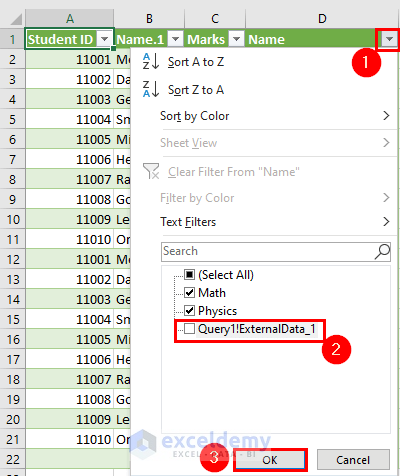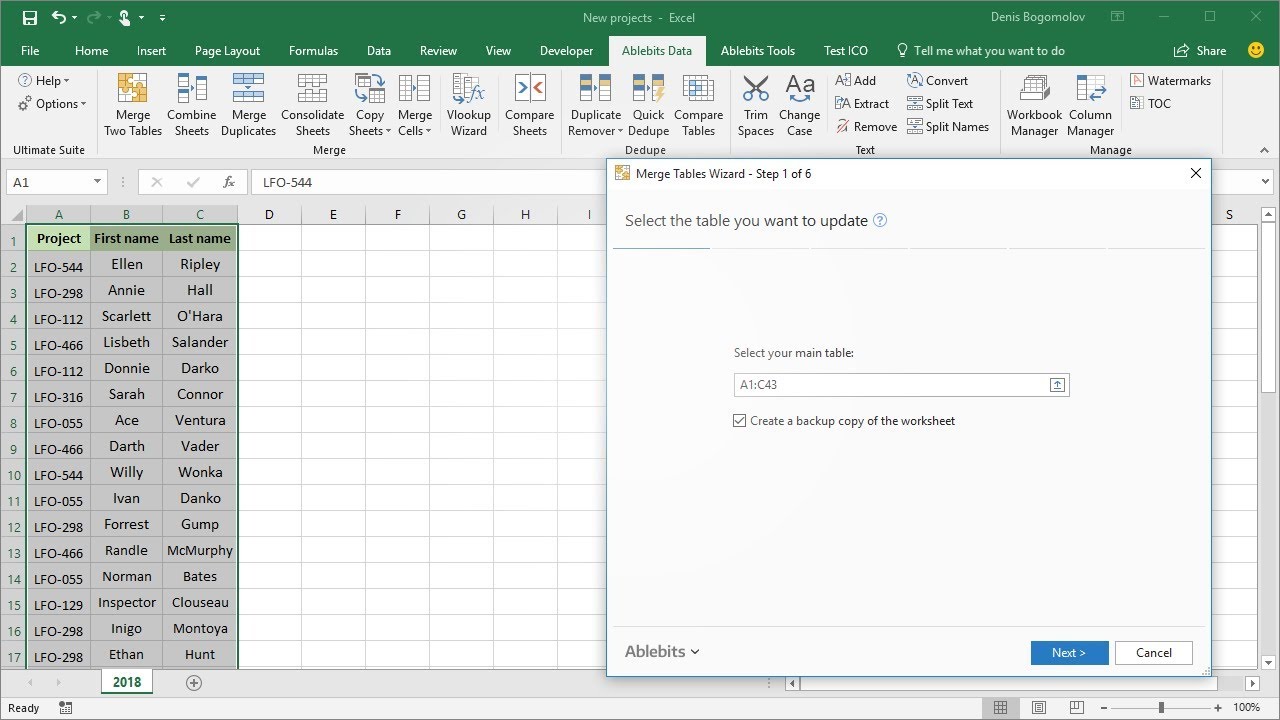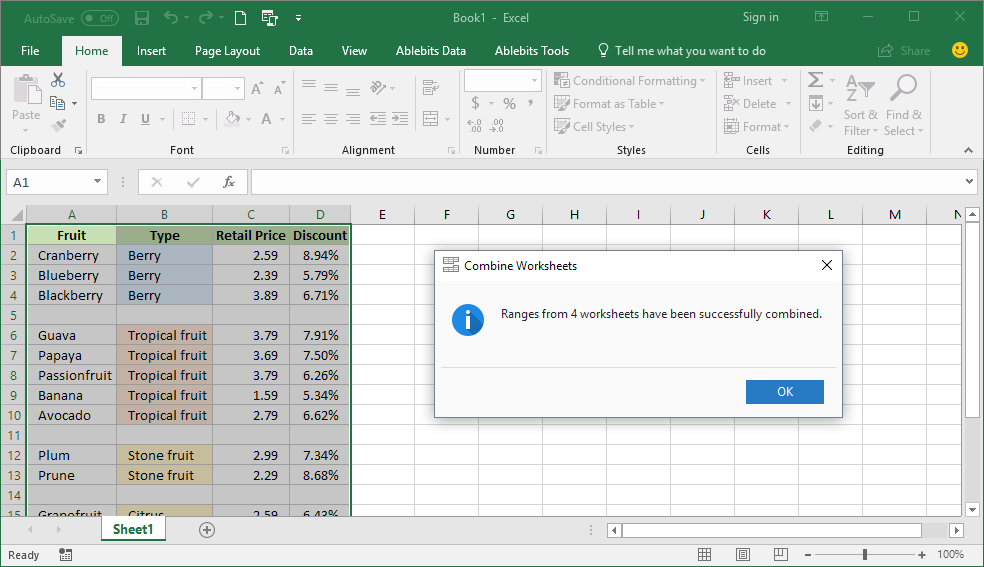5 Ways to Easily Merge Sheets in Excel Workbook

Effortless Sheet Merging in Excel: 5 Efficient Techniques

Merging sheets in an Excel workbook is a common task, whether you're consolidating data from various departments or compiling reports from different sources. Excel offers multiple ways to accomplish this, each suited to different needs. Here, we delve into five effective methods to merge sheets in Excel, making your data management seamless and efficient.
1. Using the Consolidate Function

The Consolidate function in Excel is perfect for merging data from multiple sheets using functions like Sum, Average, Count, etc. Here's how you can use it:
- Open your Excel workbook and click on the sheet where you want the consolidated data.
- Go to the Data tab and select Consolidate from the Data Tools group.
- In the Consolidate window, choose your preferred function from the Function list.
- Click Add to include the ranges from each sheet you want to consolidate. You can specify the range or refer to named ranges.
- Under Use labels in, choose Top row, Left column, or both if your data includes labels.
- Click OK to execute the consolidation.
🔎 Note: When using Consolidate, ensure that your data structures across sheets are similar, or the function might not work as expected.
2. Using Power Query (Get & Transform)

Power Query, known as Get & Transform in newer versions, is an advanced tool for merging sheets with different structures. Here's how you can use it:
- Go to the Data tab and click on Get Data > From Other Sources > From Microsoft Query.
- Select Excel Files, then choose the Excel file you want to merge data from.
- Navigate through the tables in your workbook, choosing sheets or ranges to merge.
- Use the Append Queries function to merge the selected sheets into one.
- Right-click on the query and select Load To to load your merged data into a new sheet or table.
3. Using VBA Macros

For users with a knack for coding, VBA (Visual Basic for Applications) macros provide immense flexibility in merging sheets. Here's a basic macro:
Sub MergeSheets()
Dim ws As Worksheet
Dim wsMaster As Worksheet
Dim lastRow As Long
' Set the Master sheet where all data will be merged
Set wsMaster = ThisWorkbook.Sheets("Sheet1")
' Start with a clean slate
wsMaster.Cells.Clear
' Loop through all sheets except the Master
For Each ws In ThisWorkbook.Sheets
If ws.Name <> wsMaster.Name Then
lastRow = wsMaster.Cells(wsMaster.Rows.Count, "A").End(xlUp).Row + 1
ws.Rows(1).Copy wsMaster.Cells(lastRow, 1)
ws.Rows("2:" & ws.Rows.Count).Copy wsMaster.Cells(lastRow + 1, 1)
End If
Next ws
End Sub
To run this macro:
- Press Alt + F11 to open the VBA editor.
- Insert a new module and paste the code.
- Run the macro from the VBA editor or assign it to a button in your workbook.
🎓 Note: For VBA, always save your workbook with macros enabled (.xlsm).
4. Manual Copy and Paste

Though it might seem simplistic, for small sets of data or one-time tasks, manually copying and pasting can be effective:
- Select the data in the source sheet.
- Right-click, select Copy, or press Ctrl + C.
- Switch to your target sheet, right-click where you want to paste, and choose Paste, or press Ctrl + V.
✅ Note: Manual copy-paste can lead to errors if not done carefully, especially with large datasets.
5. External Tools and Add-ins

If the in-built Excel tools aren't enough, there are numerous add-ins and tools available:
- Excel Power Tools: Offers an easy-to-use interface for data merging.
- Ablebits Data Merge Wizard: A sophisticated tool for complex data merging tasks.
- Kutools for Excel: Provides a suite of tools, including functions for merging sheets.
These tools often provide a user-friendly GUI or additional features that might not be available in standard Excel.
In summary, merging sheets in Excel can be done in several ways, each with its advantages. Whether you’re looking for simplicity with manual copy-paste, flexibility with VBA, or the power of Power Query, Excel has a method to fit your needs. Choose the one that best suits your data structure and complexity. With these techniques at your disposal, you’ll be able to handle any data merging task with ease and confidence, ensuring your reports and analyses are both comprehensive and well-organized.
What is the difference between consolidating and merging sheets in Excel?

+
Consolidating data in Excel aggregates similar data from multiple sheets using a function (like Sum, Count), whereas merging sheets involves combining data from different sheets into one without necessarily aggregating it.
Can I undo a sheet merge in Excel?

+
Once you merge sheets, there is no built-in ‘undo’ feature for the action itself, but you can use the ‘Undo’ function immediately after merging if you notice an error. It’s always a good practice to save or backup your workbook before making major changes.
Is there a limit to how many sheets can be merged?

+
Excel doesn’t explicitly limit the number of sheets you can merge, but your computer’s memory and processing power can be limiting factors. Keep an eye on your workbook’s size to avoid performance issues.



